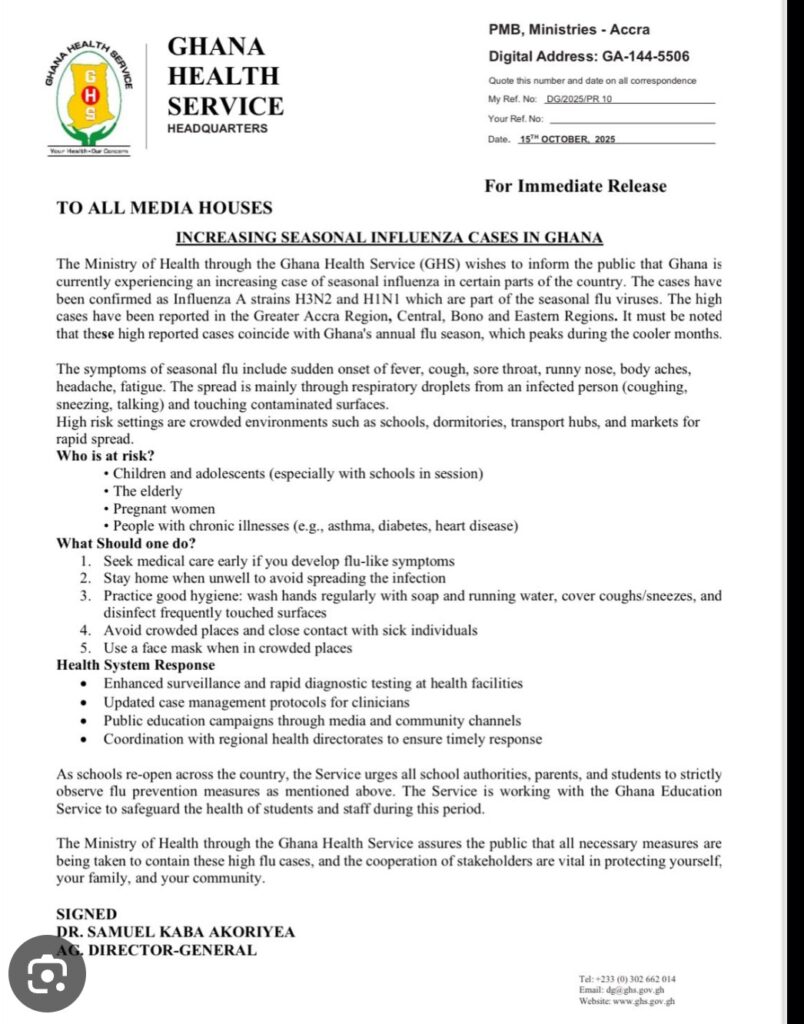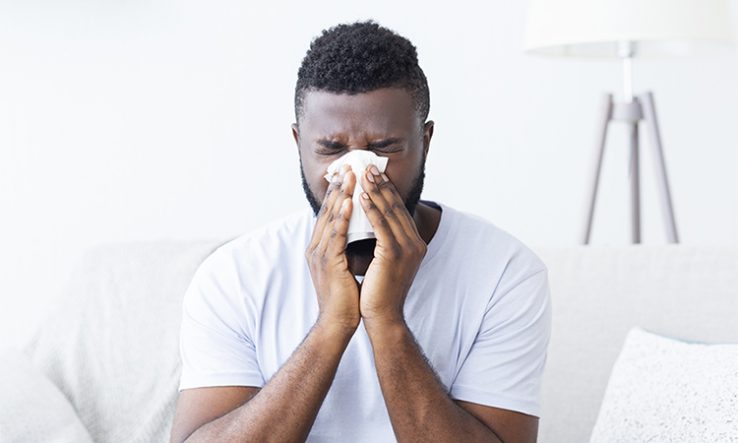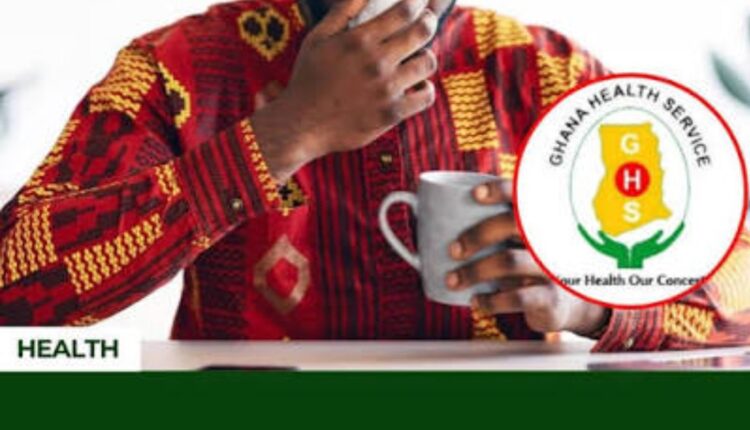Seasonal influenza cases in Ghana
Learn about the increasing seasonal influenza cases in Ghana, including symptoms, prevention tips for schools and high-risk groups, and the Ghana Health Service’s health system response.

Rising Seasonal Influenza Cases in Ghana: Symptoms, Risks, and Prevention Tips You Need Now
ACCRA, Ghana – The Ghana Health Service (GHS) has officially announced a significant increase in seasonal influenza cases in Ghana.
Consequently, the Ministry of Health is urging heightened public awareness, particularly as the country enters its annual flu season. According to a recent press release, confirmed cases of Influenza A strains H3N2 and H1N1 are rising notably in the Greater Accra, Central, Bono, and Eastern Regions.

Understanding the Symptoms and Transmission
Firstly, it is crucial to recognize the signs of the seasonal flu. The symptoms often begin suddenly and include fever, a persistent cough, a sore throat, and a runny nose. Furthermore, many individuals experience body aches, headaches, and general fatigue.
The virus spreads primarily through respiratory droplets. For instance, when an infected person coughs, sneezes, or even talks, they can release these droplets into the air.
Additionally, touching contaminated surfaces and then touching your face is another common way the flu virus is transmitted.

Identifying Those at Highest Risk
While anyone can contract the flu, certain groups are at a much higher risk for severe complications. Specifically, the GHS highlights the following vulnerable populations:
· Children and adolescents, especially with schools now in session.
· The elderly.
· Pregnant women.
· People with underlying chronic illnesses such as asthma, diabetes, or heart disease.
Moreover, crowded environments like schools, dormitories, markets, and transport hubs are considered high-risk settings for rapid spread.
Essential Steps for Protection and Prevention
Therefore, the Ghana Health Service has issued clear guidelines on what to do to protect yourself and your community.
1. Seek Medical Care Early: If you or a family member develop flu-like symptoms, seek medical attention promptly.
2. Stay Home When Unwell: This is a simple yet critical step to avoid spreading the infection to colleagues, classmates, and others.
3. Practice Rigorous Hygiene: Make a habit of washing your hands regularly with soap under running water. Also, always cover your mouth and nose when you cough or sneeze and regularly disinfect frequently touched surfaces.
4. Avoid Crowds and Sick Individuals: Minimize your time in crowded places and avoid close contact with people who are visibly sick.
5. Use a Face Mask: When in crowded or poorly ventilated areas, wearing a face mask can significantly reduce the risk of transmission.
The Health System’s Proactive Response
In response to this increase, the Ghana Health Service is implementing a multi-faceted health system response. Importantly, they have enhanced surveillance and rapid diagnostic testing at health facilities nationwide. Additionally, they have updated case management protocols for clinicians to ensure effective treatment.
Simultaneously, the service is rolling out public education campaigns through various media and community channels. They are also coordinating closely with regional health directorates to ensure a timely and efficient response across all affected regions.
A Critical Focus on Schools
As schools have reopened across the country, the GHS is placing a special emphasis on educational institutions. Consequently, they are urging all school authorities, parents, and students to strictly observe the flu prevention measures. The Service is also working directly with the Ghana Education Service to safeguard the health of both students and staff during this period.
Ultimately, the Ministry of Health assures the public that all necessary measures are being taken to contain the outbreak. However, the cooperation of every citizen is vital. By following these guidelines, you play an essential role in protecting yourself, your family, and your entire community from seasonal influenza.



